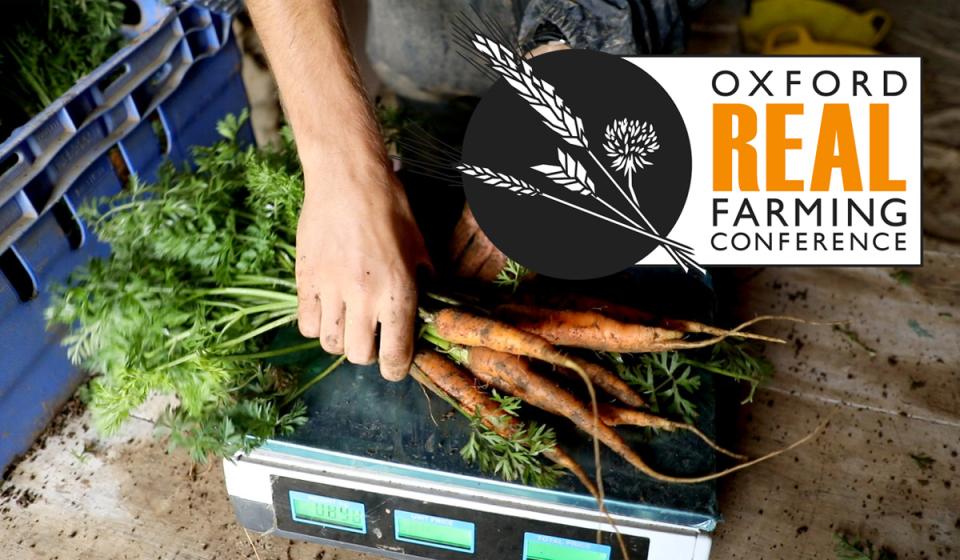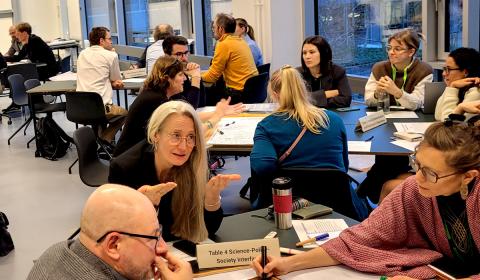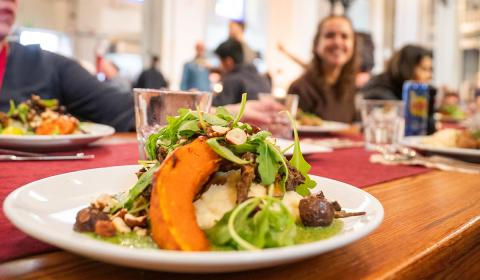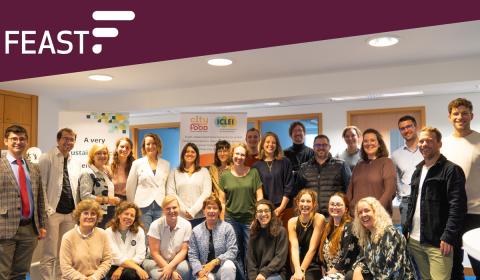
Image copyright © Oxford Real Farming Conference
Good Food Oxfordshire (GFO) is leading Oxfordshire’s role as a Living Lab within the FEAST project. We are working with our network of over 200 local food organisations – community groups, food and farming businesses, institutions and local councils - to address the challenges of access and affordability to healthy and sustainable food. As part of FEAST, we will work with communities vulnerable to food insecurity to co-design and test solutions that will improve access to ‘good food’ to achieve our vision that ‘everyone in Oxfordshire has access to the healthy and sustainable food that they need, every day’.
Each year Oxford is fortunate to host the Oxford Real Farming Conference (ORFC). The ORFC is known as the radical gathering of food producers, farmers and growers, policy makers, researchers and activists, all committed to transforming our food system from the ground up. It’s a cornerstone in the calendar for many; a place to share progressive ideas on everything from farm practice to food sovereignty, land justice to farming policy, food politics to land-based traditions and knowledge.
In this blog we share some of the ORFC highlights that focus on the issues, and potential solutions to, access and affordability of good food for everyone.
One issue that GFO and many others are interested in exploring more deeply is the issue of cost. Unfortunately the current reality is that organic, locally grown food is often too costly – or at least not the priority - for many people. The session on Bridging the gap between sustainable farming and low income communities covered this topic, and speakers from Sustain, Growing Communities and Alexandra Rose agreed that we have to build a bridge between healthy affordable food and climate friendly diets. One way in which to do this is to overcome the four challenges to eating healthily and sustainably: Access, Affordability, Acceptability and Awareness. Some solutions suggested in this session were food vouchers such as the Alex Rose Vouchers, low-cost meal kits, solidarity models and pay-it-forward measures.
Other sessions explored potential means to address these four challenges:
Growing in common ground, what’s needed to make the united visions of organic, regenerative and agro-ecological practices flourish? This session showed that we need smart ways to feed the world and more recognition that the current food system is broken, but that might start with a clearer vision of the best way to farm in the UK as there still seems to be a division between regenerative and organic farming.
The session on Why convert to Community Supported Agriculture (CSA)? showcased how CSA can change people’s relationship to food, and can enrich farms and connect them to new customers. There are, however, barriers such as access to land, a lack of community interest, and a shortfall in available workers.
Farmer connections: A food partnership approach (close to our own heart) showcased the success of Good Food Leicestershire. Through their efforts to make school meals more sustainable, they have ensured that 75% dishes across schools in Leicestershire are freshly prepared, 20% contain less meat and 15% are organic. An incredible step forward and an example of how food partnerships can campaign for change.
What is the role of community food businesses in delivering social impact and social change showed how businesses can use a social impact toolkit to measure social impact such as health outcomes, community impact and livelihoods. St Werburgh’s Farm in Bristol shared their Equity and diversity audit – how they are exploring barriers to participation for diverse communities.
Local food economies: how do we join the dots? Highlighted how a co-op of bakers in Nottingham achieved success and are now able to offer a wider choice for the customer and offer an incubator for other small businesses.
We look forward to sharing learnings from our FEAST journey as it unfolds!
FEAST Living Lab Good Food Oxforshire


